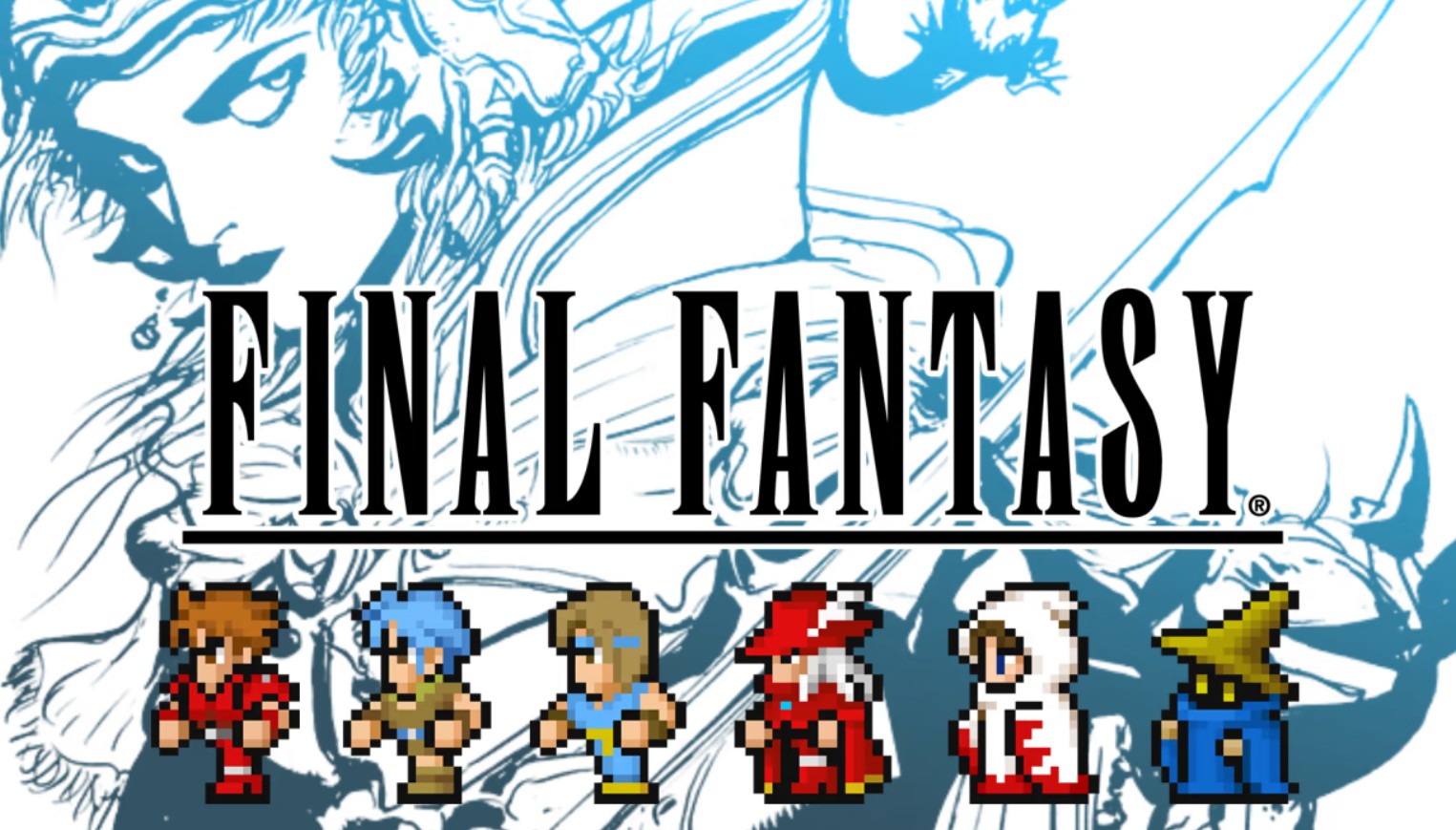This is a legendary role-playing game (RPG) series renowned for its rich storytelling, memorable characters, and groundbreaking gameplay. Since its inception, the franchise has set the bar for narrative depth and innovation in the RPG genre, immersing players in fantastical worlds filled with adventure, magic, and drama.
Developed and published by Square Enix (formerly Squaresoft), Final Fantasy debuted in 1987 and has since evolved through numerous mainline titles, spin-offs, and remakes.
This article explores everything from the origins of Final Fantasy to its gameplay mechanics, advanced tips, system requirements, and why it continues to be beloved worldwide.
File size
Development and Release of Final Fantasy
Created by Hironobu Sakaguchi, Final Fantasy was originally conceived as a last-ditch effort by Square to succeed commercially. The game’s success was so monumental that it launched a franchise spanning decades, with each entry offering unique worlds, characters, and innovations.
Over time, the series evolved dramatically—from the pixel art and turn-based battles of early titles to cinematic storytelling and real-time combat in recent releases. Each installment typically introduces a new universe and characters but retains core themes like epic quests, party-based combat, and exploration.
Fans of Final Fantasy may also enjoy RPGs such as Fallout 2 and FNaF World, which offer similarly rich narratives and gameplay depth.
Storyline and Setting of Final Fantasy
Each Final Fantasy game features a standalone story, often revolving around heroes battling formidable forces to save their world. Common themes include friendship, betrayal, hope, and the struggle between light and darkness.
Settings range from high fantasy kingdoms and futuristic cities to steampunk worlds and post-apocalyptic landscapes. The games are known for their emotional storytelling, deep character development, and memorable villains.
Players don’t just complete quests; they experience unforgettable journeys filled with twists and impactful moments.
Game Modes in Final Fantasy
Final Fantasy primarily offers single-player RPG experiences with the following variations:
- Story Campaign: Engage in rich narrative-driven gameplay, controlling a party of characters.
- Side Quests and Exploration: Dive into optional content that expands the story and world.
- Multiplayer and Online Modes: Some modern entries like Final Fantasy XIV offer massive multiplayer online RPG (MMORPG) experiences.
- Mini-games and Challenges: From chocobo racing to card games, the series includes fun diversions within the main game.
Gameplay Mechanics of Final Fantasy
Final Fantasy’s gameplay blends classic and modern RPG elements:
- Turn-Based and Active Combat: Earlier titles use turn-based systems, while recent ones incorporate real-time or hybrid combat.
- Party Management: Control a team of characters with unique abilities and customize their skills and equipment.
- Exploration: Navigate towns, dungeons, and vast overworld maps filled with secrets.
- Character Progression: Level up, acquire new abilities, and equip powerful gear.
- Summons and Magic: Call upon powerful entities known as summons and master elemental magic for battle advantage.
If you’re fascinated by these mechanics, game like Cloud Meadow offer comparable RPG experiences.
Beginner Tips and Tricks for Final Fantasy
New to Final Fantasy? Here are essential tips to get started:
- Balance Your Party: Include characters with offensive, defensive, and support roles.
- Explore Thoroughly: Search every corner of the map for hidden items and quests.
- Manage Resources: Conserve healing items and magic points (MP) for tough battles.
- Use Status Effects: Exploit enemy weaknesses using spells and abilities.
- Save Often: Progress can be lost after difficult encounters, so save your game regularly.
Important Features of Final Fantasy Game
Here are some key highlights that define the Final Fantasy experience:
1) Epic Storytelling and Characters
Every entry delivers a sweeping narrative filled with emotional moments and memorable twists. The characters are deeply developed, each with unique backstories and motivations.
These personal journeys intertwine with grand themes of heroism, sacrifice, and hope. This combination creates stories that stay with players long after the credits roll.
2) Innovative Combat Systems
The series continually reinvents its battle mechanics to keep gameplay exciting. From classic turn-based encounters to real-time action hybrids, each installment offers a fresh strategic challenge.
Players must balance tactics, timing, and resource management to succeed. This evolution ensures combat remains engaging for both newcomers and veterans.
3) Stunning Visuals and Music
Final Fantasy is renowned for its breathtaking graphics and cinematic presentation. Beautifully crafted environments and detailed character designs bring each world to life.
The legendary soundtracks, often composed by Nobuo Uematsu, perfectly enhance the atmosphere. These artistic elements work together to create an unforgettable sensory experience.
4) Diverse Worlds and Settings
Each game introduces a unique universe, blending fantasy, science fiction, and cultural influences. Players might journey through medieval kingdoms, floating cities, or futuristic metropolises. These settings are rich in lore and history, encouraging exploration. The constant variety keeps the series fresh and imaginative.
5) Rich Side Content and Mini-Games
Beyond the main storyline, players can dive into a wealth of optional activities. From challenging bosses to inventive mini-games, there’s always something new to discover. These diversions often reward rare items or expand the lore. They add depth and replay value, making each adventure feel even more complete.
Why Final Fantasy Stands Out
Final Fantasy stands apart by continually reinventing itself while staying true to its core RPG roots. Its combination of innovative gameplay, breathtaking presentation, and deeply moving narratives keeps fans returning title after title.
The franchise’s ability to balance nostalgic elements with fresh ideas makes it a timeless pillar in gaming history, influencing countless other RPGs worldwide.
Advanced Gameplay Strategies for Final Fantasy
Ready to level up your gameplay? Try these advanced tactics:
- Optimize Equipment: Customize gear sets for different combat scenarios.
- Master Summons: Use summons strategically for maximum impact in boss fights.
- Chain Combos: In real-time systems, practice timing attacks and abilities for combos.
- Grind Smart: Level up in areas suited to your current level for efficient progression.
- Side Quest Completion: Some side quests unlock powerful weapons or story insights.
System Requirements
Here are typical system requirements for playing Final Fantasy on a modern computer:
- OS: Windows 10 (64-bit)
- Processor: Intel Core i5 or equivalent
- Memory: 8 GB RAM
- Graphics: NVIDIA GeForce GTX 760 or AMD Radeon R9 280X
- Storage: 50 GB available space
- DirectX: Version 11
Whether you are new to RPGs or a longtime fan, Final Fantasy offers unforgettable journeys filled with magic, mystery, and heroism. Its evolving gameplay and rich storytelling make it a must-play series for anyone passionate about role-playing adventures.










